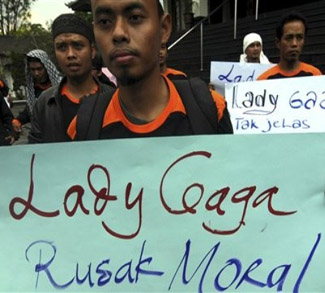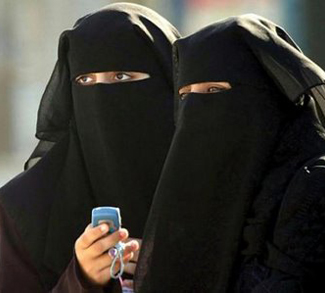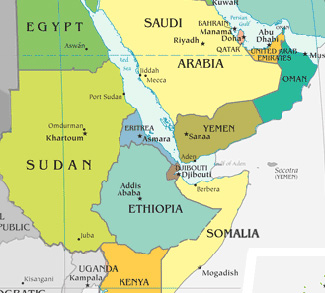Indonesia has been held up as a role model that Middle Eastern countries could learn some lessons from when it comes to reconciling democracy with Islam. But is there any truth to this claim, or is it merely a case of wishful thinking on the part of Western leaders, asks Zachary Fillingham of Geopoliticalmonitor.com
When David Cameron claims that Indonesia is proof that democracy and Islam can, “flourish alongside each other,” or Hillary Clinton declares, “if you want to know whether Islam, democracy, modernity, and women’s rights can coexist, go to Indonesia,” there’s an unmistakable hint of self-delusion in the delivery, like it’s only themselves that they’re trying to convince. This could be owing to the fact that Western countries would welcome such a role model with open arms, a country that they could hold up as an example to the Irans, Egypts, and Pakistans of the world. This country used to be Turkey, but circumstance has recently intervened to tarnish its secular-democratic credentials. Now, Western leaders are looking to Indonesia, a country that also happens to strategically important, to take Turkey’s place.
Now that it has been established that it is in the interest of Western governments that Indonesia be classified as a democratic role model for the Middle East, a real analysis can begin.
When gauging the health of any democracy, one must always keep in mind that real democratic development is a slow process that takes place over the course of decades (despite what policy briefs on the Afghan war would have us think). And it is in this sense that Indonesian democracy is a real success story. It has only been 14 years since Suharto resigned in 1998, ending a period of authoritarianism that lasted 30 years. The year 2004 marked the first time that the Indonesian people directly elected their president. Over this relatively brief period of time, Indonesian democracy has registered several triumphs, including the cutting of patronage links between army and the political process, constitutional and electoral reform, healthy and organic growth of political parties, and the political rehabilitation of Islamist groups that had been driven underground during the Suharto era.
These impressive gains took place within a very small timeframe, and a country like Egypt, which is going through its own strikingly-similar transition from autocracy to democracy, could certainly learn a lot from the Indonesian experience.
But the question of whether Indonesia is a role model or not is a bit more complicated than a complete success story. Andreas Harsono, a veteran journalist in Indonesia, recently wrote a telling New York Times editorial on the state of Indonesian democracy. In it, he presents a lengthy docket of evidence describing how minority rights are being trampled up and down the archipelago. According to Harsono, anti-blasphemy regulations are being used to circumvent constitutional safeguards on religious expression in order to crack down on minority groups. As of 2010, over 150 of these religious regulations have been enacted to restrict minority rights. Other democratic deficiencies include: a 2006 decree on ‘religious harmony’ that severely restricts the construction of Christian churches, instances of religious violence that go unpunished by authorities, the imprisonment of peaceful protestors, and the legal harassment of anti-corruption activists, journalists, and other politically active citizens. Indeed, these kinds of problems aren’t really role model material.
And then there’s the question of Islam and democracy. This can be somewhat of a paradox for Western observers, as they pine for democratic expression but so often bristle at what Muslim populations choose to democratically express. There are several Islamist political parties in Indonesia, the largest of which is the Prosperous Justice Party (PKS), which has a popularity level that hovers at around 8 percent, and it is currently the third-largest party in the ruling coalition. The PKS is somewhat analogous to the Muslim Brotherhood in Egypt, and it champions a conservative Muslim line that focuses on keeping people like Lady Gaga and Irshad Manji, a feminist writer, from entering Indonesia. And while the PKS is also the force behind some of the aforementioned democratic transgressions, President Yudhoyono needs to placate the PKS in order to survive if the Golkar Party were to leave his governing coalition. In other words, it’s just the ‘business as usual’ wax and wane of democratic politics.
Thus, the question of whether or not Indonesia is a democratic role model for Muslim countries is not so straightforward. In some ways it has made remarkable progress over a short period of time, and in others it is falling behind when it comes to protecting vulnerable sections of Indonesian society. But what is certain is that unqualified Western praise for Indonesian democracy tends to be over-simplified wishful thinking. Indonesia may be a role model insofar that it put itself on the democratic path, but there’s a long way for it to go yet.




